-
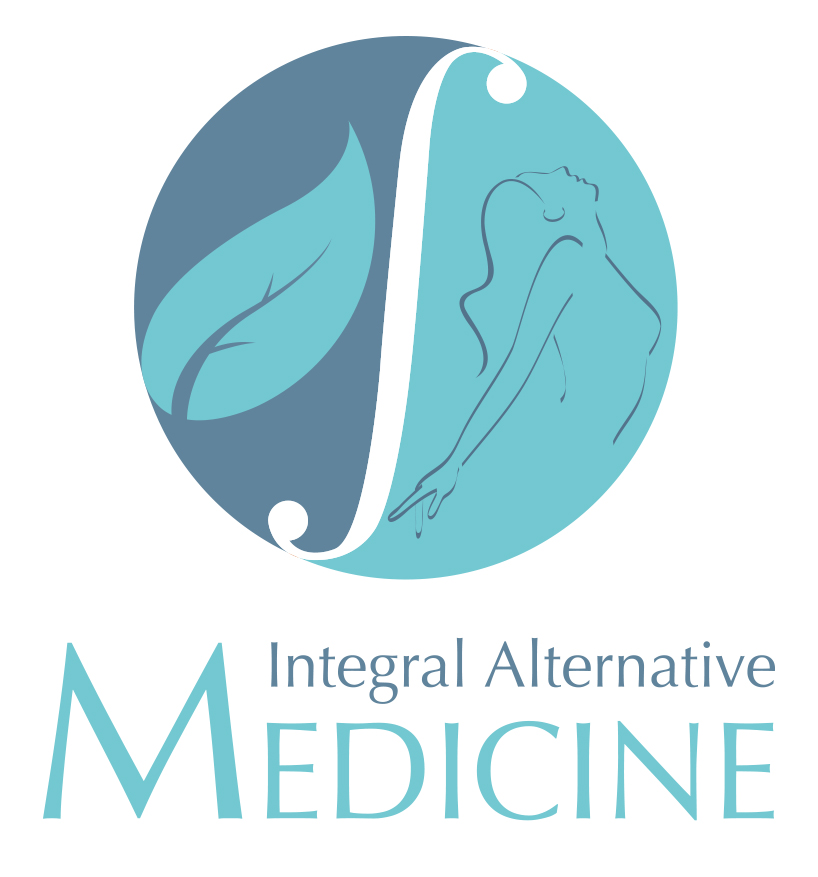 Integral Alternative Medicine LLC730 S Dearborn St
Integral Alternative Medicine LLC730 S Dearborn St
Chicago, IL 60605(312) 631-3095 -
 EVANSTON AREA1609 Sherman Ave, Ste 205, Evanston, IL 60201(312) 631-3095
EVANSTON AREA1609 Sherman Ave, Ste 205, Evanston, IL 60201(312) 631-3095 -
Latest Articles:
- • Strategies to Stay Calm and Joyful During the Season •
- • How to Stay Mentally Resilient in the Colder Months •
- • Three Delicious and Healthy Soup Recipes to Keep Warm This Winter •
Lifestyle
Why You Should Get Regular Acupuncture Treatments
Everybody knows you should see your family physician at least once a year and your dentist at least twice a year. But not everybody knows about acupuncture and Traditional Chinese Medicine and the many benefits it can provide for you. If you start incorporating acupuncture into your health and wellness regime, you may not have to rely on the family physician so much for those minor little issues. Let’s look at how getting regular acupuncture treatments can help you stay happy and healthy. continue reading
Research Update: Acupuncture and Sports Injuries
In a study conducted by researchers from the Physical Education Institute at Zhengzhou University, Traditional Chinese Medicine was investigated to see how it affected athletes suffering from motor impairment due to injury. Participants in the study suffered from limited range of motion in a number of joints, including the neck, upper and lower limbs. The researchers administered acupuncture and herbs, alone or in combination, to their different groups. The participants reported increased range of motion and decreased soreness after receiving treatment. Those who received herbs and acupuncture reported greater healing and relief, with a total effectiveness rate of 84.4 percent overall. This study shows the combination of acupuncture and herbs is highly effective for the treatment of physical mobility impairment caused by participating in sports.
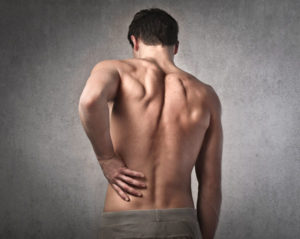
Sports injuries occur frequently from participating in organized sports, competitions or even backyard games. These injuries can range from minor to severe and they can occur for a multitude of reasons.
Sports injuries are typically categorized as acute or chronic. An acute sports injury is usually one that involves a single blow or application of force, like being tackled. Chronic sports injuries occur when an area is overused or abused for long periods of time. This can happen with sports like tennis, weight lifting, running, etc. Sprains and strains around joints tend to be the most common types of sports related injuries.
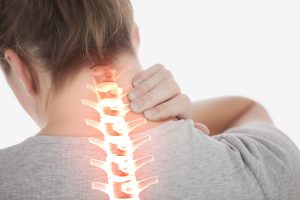
Most people who suffer from sports related injuries implement the use of R.I.C.E. (rest, ice, compression, elevation) almost immediately after the injury occurs. And while all of these may be necessary in the beginning, using ice long-term is actually detrimental to the tissue because it impedes blood flow. This is where acupuncture can be very beneficial for treating sports injuries.
Many athletes, professional and amateur, are now utilizing acupuncture and some of the other modalities associated with Traditional Chinese Medicine (TCM) to help them heal more quickly. Acupuncture has a very successful history of treating sports related injuries and many professional teams now have licensed acupuncturists on staff. Using acupuncture to treat injuries has been around for centuries. It began with martial arts and it is still one of the primary means of healing used.
Acupuncture can help reduce swelling, decrease pain, decrease inflammation and increase blood flow to the injured area. Recent studies, like the one above, show that acupuncture is very effective at treating sprains, strains, aches, pains, swollen muscles and even shin splints. And as an added bonus, regular acupuncture treatments can improve performance and give athletes a competitive edge.
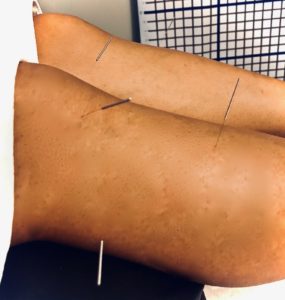

Acupuncture of sports related knee and wrist strains
Photos taken by Integral Alternative Medicine
The Paradox of Our Smartphones
How much do we REALLY use our cell phones?
Remember the days of using landline telephones and dial-up internet? It wasn’t too long ago. Cell phones began gaining popularity almost two decades ago and during that time it was a supplementary device to the landline telephone. Oh, how times have changed!
In this day and age, it seems impossible to get by without the use of a cell phone. It’s a device that can literally do it all. Roughly nine out of ten Americans own a cell phone and an estimated 43% of adults live in a cell-phone-only household. It holds a direct connection to friends, family, and coworkers. It also connects us to the world by way of unlimited news, Google searches, music, social media, and not to mention an always ready camera available at our fingertips.
Cell Phone Science
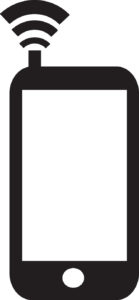
Cell phones give off a form of energy known as radio-frequency (RF) waves. It can be argued that the direct contact of cell phones to the head and neck region allows for the body to absorb more RF waves. Therefore, scientists and physicians are conducting research studies to identify a direct correlation with the absorption of these RF waves and incidence of head and neck tumors.
There have been a number of large-scale studies that have been analyzed by the American Cancer Society showing mixed results. However, one particular Swedish group has studied this topic extensively and concluded that with ten or more years of cell phone use, there is an increased risk of head and neck tumors specifically to the side of the head– where cell phones are held. In another study by the same group, they used the Swedish cancer register to find increased rates of unknown tumors of the head and neck region in the age group of 20-39. This may suggest a higher risk of these tumors in subjects that have used a cell phone device before the age of 20.
Limitations
The International Agency for Research on Cancer (IARC) is part of the World Health Organization (WHO). Its major goal is to identify causes of cancer and classifies RF fields as ‘possibly carcinogenic to humans,’ based on limited evidence of a possible increase in risk for brain tumors among cell phone users, and inadequate evidence for other types of cancer.
There are many limitations of these studies to consider, such as what type of cell phone and how often it is being used. Additionally, it is impossible to know what type of pre-existing environmental and genetic risks individuals have for developing tumors. Finally, many of these studies have used subjects with cell phone habits from 10 years ago. The culture of cell phone use is changing rapidly. Now, 94% of smartphone owners carry their phone with them and 82% say they never or rarely turn their phones off. There need to be updated studies on the subject with these new cell phone habits.

So what is the message?
It is no secret that our society is continuing to be driven by technology. Therefore, that would mean we are constantly surrounded by RF waves. It takes decades for tumors to form after exposure to a carcinogen, and considering the widespread use of cell phones has only been around for 20 years, one can argue that RF exposure from the cell phone can still be a source of detrimental health effects. Given the mixed results and limitations of these studies, what should we do?
Like all good things in life, everything should be enjoyed in moderation. It is a good idea to be aware of how much we are using our cell phones. We can take easy steps to limit exposure by using speaker mode, texting, and using Bluetooth headphones which are known to emit virtually no RF waves. It’s not a bad idea to take preventative action to protect ourselves from any potential harm caused by cell phone RF waves until there are more refined studies on this subject.
What do you think?
“Good health and good sense are two of life’s greatest blessings.” — Publilius Syrus
Meno-Pause or Meno-Start? Life After 50

According to statistics at World Health Rankings, women’s life expectancy is 81.6 years (ranges between 74 and 84 depending on the state you live in). Menopause typically onsets at about 50. Theoretically, this means that the average woman should have more than 30 years of living after menopause!.
Women stress about these changes and are constantly looking for ways to beat the biological clock. It is time to shift our way of thinking and gracefully accept that menopause is a natural physiological process.
The first step is to educate ourselves about what to expect so we can be prepared to handle these changes. The climacteric phase or perimenopausal stage marks the beginning of the transition from reproductive years to non-reproductive years. Women are born with a fixed number of eggs stored within ovaries and are shed during each menstrual period.The hormones used to maintain this cycle are mainly estrogen and progesterone. Subsequently, as women age, the number of eggs and these hormones steadily decline. The severity of menopause symptoms can be attributed to the fluctuating hormone levels but can also be affected by lifestyle and dietary habits throughout a woman’s life prior to 50. Furthermore, it is important to note that 45-85% of women may experience any of these symptoms up to 5-10 years after hormone levels have decreased.
Eastern vs. Western Medicine

Western medicine practitioners contribute symptoms to be directly related to hormone imbalances. In addition to that, Traditional Chinese Medicine (TCM) practitioners believe these symptoms to be a result of systemic imbalances in combination with the body’s way of dealing with the natural aging process of menopause. Therefore, each woman’s experience is different depending on the systems affected.
Common symptoms include:
- Hot flashes
- Headaches
- Lethargy
- Irritability
- Anxiety
- Depression
- Insomnia
- Night Sweats
- Vaginal dryness
TCM considers the menopausal symptoms as indications that the Kidney energy is waning, termed as Kidney Yin Deficiency. Additional symptoms can include presentations of Kidney Yin Deficiency such as soreness and weakness of the lumbar regions and knees, dizziness, ringing in the ears, hearing problems, a dry mouth and throat, a hot sensation in the palms, soles of the feet, and chest and spontaneous sweating. We address both Kidney Yin Deficiency (the “root”) and the symptoms with acupuncture and Chinese herbs to tonify Kidney and clear heat.
Kidney deficiency is recognized in the clinic when the above-mentioned heat symptoms appear, which is characterized as “Empty heat” or “Heat from Deficiency” Empty heat can lead to insomnia, hot flashes, menopausal syndrome and anxiety disorders.
Symptom Relief
Current Western medicine treatments for menopause symptoms include hormone replacement therapy (HRT), which reduces vasomotor symptoms such as hot flashes by 20-30%. However, HRT comes with concerning side effects such as increased rates of heart attack, stroke, and breast cancer (1).
As a result, there have been several studies supporting alternative modalities in the treatment of the menopausal symptoms. Randomized control trials in the U.S., Norway, and parts of China have proven Traditional Chinese Medicine methods such acupuncture to result in as much as a 50% reduction in some of these symptoms with an average of 10-12 treatments over a 3-month period. (1,2,4)
The acupuncture points I use in my treatments target the Kidney and Heart meridians to alleviate these common distressing symptoms.
Fig 1 Fig 2 Fig 3 Fig 4
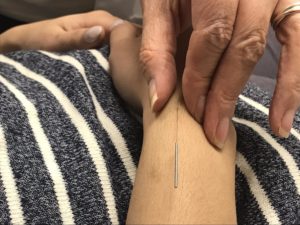



Fig. 1: Lung 7 and Kidney 6 combined to regulate the Conception Vessel (Ren), regulates the uterus and nourish Kidney yin, supports sleep.
Fig. 2: SP 6 benefits Kidney, reduces night sweats and helps sleep.
To clear heat and support sleep, I may use other points such as:
Fig. 3: Large Intestine 11 or 4
Fig: 4: Liver 3 – spreads Liver Qi, helps with moodiness, headaches and blood pressure (in combination with other points)
Heart acupoints – if insomnia is the main problem
Therefore, fear not. Approaching the age of 50 does not have to be a dreaded process. We don’t have to fit the stereotype of a woman with raging hormones, having no control of her emotions or internal temperature gauge. The comprehensive components of TCM include lifestyle advice, acupuncture, and Chinese herbs. Each patient’s treatment is unique and personalized based on the systemic imbalances. Given this information, we now have the knowledge and the tools to take the appropriate steps to ease into this transition and let this milestone be an exciting new phase of life!
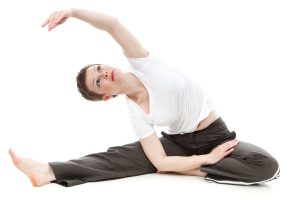
Stay tuned for future posts…..
“Just remember, once you’re over the hill you begin to pick up speed.” —Charles Schulz
Discussion Question: What are some of your fears for approaching menopause?
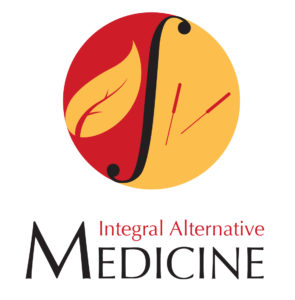
Bibliography
- Borud EK, Alraek T, White A, Fonnebo V, Grimsgaard S. The effect of TCM acupuncture on hot flushes among menopausal women (ACUFLASH) study: a study protocol of an ongoing multi-centre randomised controlled clinical trial. BMC Complement Altern Med. 2007 Feb 26;7:6. PubMed PMID: 17324253; PubMed Central PMCID: PMC1819392.
- Fu C, Zhao N, Liu Z, Yuan LH, Xie C, Yang WJ, Yu XT, Yu H, Chen YF. Acupuncture Improves Peri-menopausal Insomnia: A Randomized Controlled Trial. Sleep. 2017 Nov 1;40(11). doi: 10.1093/sleep/zsx153. PubMed PMID: 29029258.
- Maciocia, Giovanni. “Obstetrics and Gynecology in CM.” (2011): 740-741.
- Venzke L, Calvert JF Jr, Gilbertson B. A randomized trial of acupuncture for vasomotor symptoms in post-menopausal women.Complement Ther Med. 2010 Apr;18(2):59-66. doi: 10.1016/j.ctim.2010.02.002. Epub 2010 Mar 23. PubMed PMID: 20430288.
Post-partum vulnerability

Early in the summer, a young mother with her newborn baby was at the mall, doing some shopping. She was wearing a cute summer dress with no sleeves. The temperature at the store was pretty chilly and I could not help but get concerned about that girl’s health for being exposed to such a cold environment during her post-partum period that consists of about six weeks after childbirth.
In China, the post-partum period is considered a very vulnerable time for the mother, and they ensure that the mother receives proper care at home. There is a tradition called Zuo Yue Zi Postpartum confinement passed to women from generation to generation. Generally speaking, the new mother should follow a special care routine that involves a special diet and avoiding drafts and physical work for an entire month.
This makes sense from the traditional Chinese medicine perspective. After childbirth, the mother’s body is deficient in terms of energy and blood (Qi and Blood deficiency), so the focus should be on replenishing blood by providing high-quality nutrients and facilitating the digestive system’s ability to process and obtain nutrients from food.
Here are some symptoms that correlate to “Qi and Blood deficiency” that are common after childbirth:
- Fatigue
- Dizziness or lightheadedness
- Loss of memory
- Dry eyes
- Poor appetite
- Insomnia
- Blurred vision
- Melancholy, sadness or depressive mood
Note: A more severe presentation may indicate post-partum depression, which is a condition that requires medical attention. If that is the case, seek immediate medical attention.
Recommended foods to support blood replenishment:
- Grains: barley, corn, oats, rice, sweet rice, wheat, bran.
- Vegetables: alfalfa sprout, artichoke, beetroot, button mushroom, cabbage, celery, dandelion leaf, dark leafy greens, kelp, shiitake mushroom, spinach, watercress, wheatgrass (in particular artichoke, beets, dandelion leaf, kelp).
- Fruit: avocado, dates, mulberries, grapes, figs, apricots, plums.
- Nuts and seeds: almonds, black sesame.
- Fish: mussel, octopus, oyster, sardine, tuna.
- Meats: chicken, red meat, liver (pork and sheep).
- Beans: adzuki, black soya, kidney beans, black beans.
- Spices: ginger, cardamom, vanilla, cinnamon.
- Herbs: nettle, parsley.
- Eggs: chicken eggs.
- Condiments that are warming and may increase the digestion are ginger, cardamom.
In addition, your Chinese herbalist can recommend appropriate decoctions or formulas for your individual needs (e.g. variations of Ba Zhen Tang or Gui Pi Tang) to speed up your recovery.
Disclaimer: This article contains general information about health topics but does not constitute medical advice. If you have any questions related to your condition, you should contact your doctor or healthcare provider. If you think you may be suffering from any medical condition, you should seek immediate medical attention.

